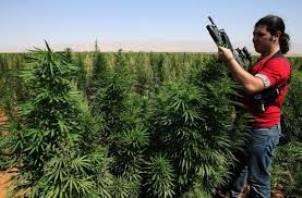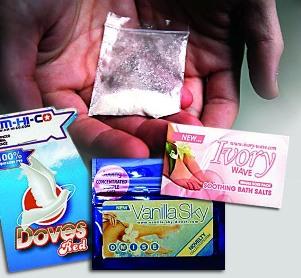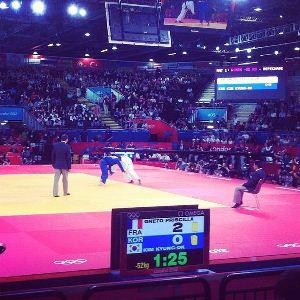This
Sports Illustrated piece on the growing prevalence of marijuana use among NFL prospects is such a carnival of mind-bending idiocy that I wonder if I'll ever enjoy the sport quite as much after having read it. The whole thing is just a series of anonymous quotes from NFL coaches and executives acting like marijuana is some sort of mysterious plague gripping professional sports. Yet for all the deep concern about it, you won't find any attempt at explaining why anyone even gives a sh*t about this to begin with.
So what if an athlete has a secret history of getting super baked. Does he have a secret history of sucking at football?
That would be worth looking into. But the more I think about it, the more convinced I am that the real story behind all this nonsense is actually rather simple and far too embarrassing to acknowledge.
I seriously doubt any of this has anything to do with concerns about the impact of marijuana use on an athlete's performance. The sport of football has a rich history of dominant players known for indulging in cannabis and it would be laugh-out-loud moronic to suggest that the stuff was gonna screw up anybody's stats. Nobody even bothers to argue that, because it's dumb and everyone knows it's dumb.
The real issue is that you have to worry about these guys failing drug tests or getting arrested and then having to deal with seismic media attention and pissed off corporate sponsors. It's all about money, but you can't say that without revealing the mindlessness of marijuana policy in general, which the NFL isn't about to weigh into. Instead, we're stuck with marijuana-in-sports coverage that remains ubiquitous, yet utterly devoid of substance.
Meanwhile, as
SAFER points out, the NFL is married to the alcohol industry and couldn't possibly do more to shove beer in everyone's face at every conceivable opportunity. It is unquestionably the best example that exists of an organization which simultaneously glorifies and promotes alcohol, while treating marijuana use as an intolerable vice.
I dare anyone to consume on a frequent basis all the nutritious food and beverages the NFL wishes to sell to you, and once you're sufficiently fat and drunk, you can then make it your business to lecture Rookie of the Year Percy Harvin about whether
treating his migraine headaches with marijuana is a responsible choice.






